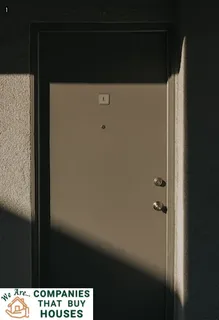In Iowa, probate can be a lengthy and costly process. Avoiding probate can offer several advantages to those selling a house in Iowa.
Without probate, the estate is quickly settled after the sale of a house, as the proceeds get distributed directly to the beneficiaries without going through court proceedings. Furthermore, avoiding probate helps to keep any details of the estate private and out of public record.
Additionally, it can help to save time and money by eliminating court costs and attorney's fees associated with a lengthy probate process. Finally, without having to go through probate, heirs may receive their inheritance much sooner than if they had gone through the court system.
Avoiding probate can help make settling an estate after selling a house in Iowa much easier for all parties involved.

When selling a house in Iowa, it is important to understand the probate process and what assets are subject to it. Probate is the legal process for distributing a deceased person's estate after death.
In Iowa, all assets owned solely by the deceased will be subject to probate, including any real estate such as a house. The probate process can take several months or longer, depending on how complex the estate is and whether there are disagreements among heirs or creditors.
Items that pass outside of probate include jointly owned property with a right of survivorship, life insurance benefits with named beneficiaries, retirement accounts with named beneficiaries, and other bank accounts with designated pay-on-death beneficiaries. Assets not subject to probate may still need to go through other legal procedures before they can be distributed or sold.
It is important to consult an experienced attorney when selling a house in Iowa so that you understand the entire process and timeline for settling an estate.
When an individual passes away, the estate is opened and an executor is appointed to manage the assets of the deceased. In Iowa, the executor's job is to ensure that all debts and taxes are paid off and that any remaining assets are distributed according to the wishes of the deceased.
The timeline for settling an estate after selling a house in Iowa can vary greatly depending on factors like whether or not there is a will, how much money needs to be collected from creditors, and if any disputes arise between beneficiaries. Executors will also need to follow local laws regarding probate proceedings as well as federal tax regulations.
To make sure that everything goes smoothly during this process, it's important for executors to work with experienced attorneys who have experience in handling these matters.

When settling an estate in Iowa, an executor has a number of obligations to fulfill. This includes taking inventory of the deceased's assets and liabilities, notifying creditors and filing claims for any debts owed, ensuring that all outstanding taxes are paid, distributing remaining assets to beneficiaries in accordance with the will or state law, and closing out the estate in a timely manner.
Additionally, if the deceased owned real property such as a house or land, it is the executor’s responsibility to handle selling it and ensuring that proceeds from the sale are properly dispersed. Depending on various factors such as market conditions and complexity of legal documents, selling a house can take anywhere from four weeks to several months.
It is important for executors to keep accurate records throughout this process in order to ensure that all requirements of estate settlement are met.
The executor of an estate must be compensated for the services they provide in Iowa when settling an estate after selling a house. In Iowa, the amount of compensation is determined by the value of the assets held in the estate and how much work is required to settle it.
Executors are generally entitled to five percent of any assets estimated over $10,000 in value but may also receive additional payment if special services are requested or provided. This fee is typically paid out of the estate’s proceeds and can take some time depending on the complexity of the case.
It's important for executors to familiarize themselves with their rights and responsibilities under Iowa law so that they can ensure fair compensation for services rendered.

In Iowa, the length of probate proceedings in relation to settling an estate after selling a house depends on a variety of factors. The size and complexity of the estate can play a role in how long it takes to settle, as well as how quickly the paperwork is completed by the parties involved.
In addition, the type of property being sold can affect how long it takes to transfer title and close out any liens or mortgages. Additionally, if there are disputes between beneficiaries or creditors, this may prolong the process.
Furthermore, state laws governing probate proceedings must be followed which can contribute to extended timelines for settling estates. With all these considerations taken into account, it is important to understand that closing an estate in Iowa may take anywhere from several weeks up to several months depending on individual circumstances.
A will is a legal document that outlines how a person's estate should be distributed upon their death and can be a useful tool when settling an estate in Iowa. In most cases, having a will is necessary to settle an estate, as it can help simplify the process.
Without one, the process may be much more difficult and require court intervention. Furthermore, any changes to the property must be approved by the court and all beneficiaries must agree with the decision before any assets are dispersed.
It is important to note that having a will does not guarantee that an estate settlement will occur faster than without one; however, it can significantly reduce the amount of time needed to complete the process.

Settling an estate without a will can be particularly difficult in Iowa. Without the guidance of a will, navigating the process of division and distribution of the deceased’s assets can be confusing and time-consuming.
This is especially true when selling a house as part of an estate settlement, since there are so many details to consider with such a large investment. The process may take longer if the house doesn’t sell right away or if there are multiple heirs involved with different ideas about how to handle the sale.
In any case, it is important to understand all of your options before beginning the estate-settlement process in order to ensure that you achieve the best outcome in the most timely manner possible. Furthermore, it is recommended that you seek out professional legal advice when dealing with complex issues such as those found in settling an estate without a will in Iowa.
When a property owner dies, their estate must go through the probate process before it can be settled. The personal representative of the estate is responsible for filing for probate after death in Iowa and this process takes time.
How long does it take to settle an estate after selling a house in Iowa? Generally, it can take anywhere from six months to two years depending on the complexity of the situation. In Iowa, there are several steps that must be taken in order to settle an estate and they include collecting information about the deceased's assets, paying off any debts owed, filing tax returns and distributing assets to heirs or beneficiaries.
During this time period, the personal representative is responsible for handling all legal matters associated with settling the estate. This includes gathering all necessary documents, filing court forms, attending court hearings and making sure all taxes are paid.
The length of time required to complete these tasks will vary greatly depending on how complicated the situation is and how quickly everything can be resolved.

Navigating the complexities of Iowa probate court and code can be an arduous process when it comes to settling an estate after selling a house. A key element of this process is understanding the legal requirements for administering an estate.
In Iowa, it is important to understand the difference between intestate and testate estates, as well as the laws governing wills and other documents related to probate administration. It is also necessary to consider potential taxes that may need to be paid on the estate's assets.
The timeframe for settling an estate in Iowa varies depending on the complexity of the situation, but typically takes between six months and one year. During this period, details regarding assets and debts must be finalized before distribution can take place.
Understanding all of these components of Iowa's probate code can help ensure a smooth transition when settling an estate after selling a house.
When selling a house in Iowa, it is important to know the key takeaways from settling an estate. Knowing the timeline for settling an estate can be complex, as there are many factors that can influence how long it will take.
Generally, it takes anywhere from 6 months to 2 years to settle an estate in Iowa. This timeline depends on how quickly paperwork is filed and approved by the court system and the complexity of any disputes among family members or other interested parties.
The first step in settling an estate is filing a probate petition with the court, which must be approved before any assets can be distributed. Next, beneficiaries must be identified and contacted; this process may involve locating missing heirs who are entitled to receive a portion of the estate or resolving disputes regarding who should inherit what assets.
Finally, creditors must be notified and paid off before any remaining assets can be divided among beneficiaries according to the terms of the will or state law if there is no will. Understanding each step involved in settling an estate can help people plan accordingly when selling a house in Iowa.

Having a will is one of the most important steps to ensure your estate is taken care of after you pass away. Without a will, it can take much longer for an estate to be settled, particularly when it comes to selling a house in Iowa.
Knowing how long it takes to settle an estate after selling a house in Iowa is critical for those who don’t have a will, as there are legal and logistical matters to consider. A will allows you to specify exactly who gets what from your estate; this is especially important if there are multiple heirs or beneficiaries.
Plus, if you have any dependents that need financial security, having a will gives them the best chance of receiving the necessary support they require. Furthermore, without a valid will in place, your property and assets may not be distributed according to your wishes.
This could lead to costly court cases and disputes between family members that could drag on for months or even years. Having a clearly defined estate plan can help avoid these conflicts and save time and money in the long run.
When entering the estate settlement process without a will, there can be several consequences. The primary consequence is that state laws dictate how the assets of the deceased are distributed, which could include individuals not mentioned in the estate plan.
Additionally, without a will, it is often more difficult to establish legal and financial documents for an estate. This can significantly lengthen the time it takes to settle an estate after selling a house in Iowa and any other state.
Furthermore, the absence of a will can cause problems during probate proceedings, such as disputes among family members and creditors making claims on assets. Additionally, if there are minors involved in the estate process, having a will in place is essential to ensure they receive their proper inheritance when they come of age.
Without a will in place when settling an estate after selling a house in Iowa or other states, these complications can add considerable delays to closing out the proceedings and distributing assets according to law.

Settling an estate after a house sale in Iowa can be a complicated process, with the duration of time it takes to settle varying depending on many different factors. One factor that determines how long it takes to settle an estate is the size and complexity of the estate itself.
If there are multiple assets, legal documents, and beneficiaries involved, the process can take longer. Additionally, obtaining court approval for certain aspects of settling an estate can significantly increase its duration.
Even if all paperwork is in order, delays caused by waiting on paperwork from banks or other financial institutions can further extend the timeline for settling an estate. Furthermore, disputes among family members or heirs regarding asset distribution can also cause delays in settling an estate after a house sale in Iowa.
In some cases, especially when dealing with large and complex estates, it may be necessary to seek professional assistance from a legal or financial expert in order to navigate the process as quickly and efficiently as possible.
Planning ahead is key to minimizing estate taxes, costs, and reducing the amount of time needed to settle an estate when selling a house in Iowa. Knowing the local laws and regulations in Iowa can help with filing paperwork properly and ensuring all documents are up to date before the sale.
It is important to contact a qualified professional such as an attorney or accountant to ensure that all paperwork is accurately completed and filed on time. Additionally, it is beneficial to create a budget for any fees or expenses associated with selling a house.
Working with knowledgeable professionals can also help identify any potential areas that may delay the settlement process. Furthermore, having an understanding of how long it typically takes for a settlement to go through in Iowa can help expedite the process by being prepared and organized ahead of time.

When settling an estate after the sale of a house in Iowa, one of the most important steps is to identify all documents that must be filed during probate proceedings. In order to efficiently and properly settle an estate in Iowa, it is essential to understand what paperwork needs to be completed as part of the probate process.
The documents necessary for filing during probate proceedings in Iowa may include a death certificate, an inventory of the estate, an affidavit of collection, tax returns, an application for appointment of personal representative and other documents related to the deceased individual's assets and liabilities. Depending on whether or not there is a will, additional paperwork may be required.
Moreover, it is important to ensure that all applicable taxes have been paid prior to filing for probate in Iowa. It is also recommended that parties involved seek legal counsel when completing the probate process as this can help expedite settlement time and ensure accuracy with all pertinent documents.
In Iowa, when selling a house, the assets must pass through probate in order for the estate to be settled. This process can be lengthy and complex and can affect the rights and responsibilities of family members.
Probate is the legal process of recognizing a will as valid and settling any outstanding debts or obligations before distributing assets to beneficiaries according to state law. Probate laws vary from state to state, so it is important to understand Iowa's specific laws when dealing with an estate.
Assets that are subject to probate in Iowa include all real property, such as a house or land, personal property worth more than $25,000 and life insurance policies. If there is no will present, then the court orders the distribution of assets according to Iowa's inheritance laws.
If a will exists, then the executor must submit it along with other documents to the court for review and approval. The executor is responsible for managing the estate during this process which includes paying any creditors and fees associated with probating the estate.
Understanding these rules can help family members protect their rights while selling a house in Iowa and settling an estate promptly.

When selling a house in Iowa, it is important to understand the entire process of settling an estate and the benefits of non-probate transfers. Knowing how long it takes to settle an estate depends on the complexity of the situation, but examining techniques such as mitigating potential disputes over property or assets can help speed up the process.
There are various types of wills available under state law, like holographic wills and testamentary trusts, that can impact the timeline for settlement. It is wise for those involved in a real estate transaction to have a full understanding of their legal rights, as well as all laws and regulations pertaining to estates in Iowa before closing any deal.
An experienced lawyer may be able to provide additional advice on these matters.
In Iowa, the process of settling an estate after selling a house can take anywhere from a few weeks to several months. Generally, the length of time it takes to settle an estate depends on multiple factors such as the complexity of the estate, required legal documents and paperwork, court proceedings, and any disputes that arise during the process.
It is not uncommon for estates in Iowa to take several months to close depending on the specifics of the situation. To ensure the process is completed in a timely manner and all relevant paperwork is filed correctly, it can be beneficial to hire an experienced attorney who specializes in estate administration and probate law.
This will help to ensure all of the proper steps are taken in order to expedite the settlement process.

As the executor of an estate in Iowa, it is important to understand how long you have to settle the estate. After selling a house in Iowa, the executor typically has a period of up to six months to finish settling the estate.
During this time, the executor must take care of all outstanding debts, taxes, and handle any other legal matters related to closing out the estate. The exact amount of time may vary depending on the complexity of the case and any other factors that may be involved.
It is important for an executor to be organized and aware of all deadlines associated with settling an estate in Iowa so that they can properly close out the case within their allotted time frame.
The settlement of an estate in Iowa after selling a house usually takes anywhere from six months to two years. The timeline is largely dependent on the size and complexity of the estate and how quickly all parties involved can agree on terms.
If there are multiple assets to be divided, such as real estate, stocks and bonds, or other investments, it may take longer. Additionally, complications such as unresolved debts or lawsuits can significantly increase the time needed for an estate to settle.
In general, legal issues surrounding the estate must be resolved before any assets can be distributed. It's important to check with your local attorney regarding specific timelines as they may vary by region.
Yes, it is possible to sell a house in probate in Iowa. Many sellers worry that the probate process will be lengthy and complicated.
However, selling a house in probate can often be completed more quickly than other types of home sales. In Iowa, the probate process generally takes between six months to two years to settle an estate after selling a house, depending on the size and complexity of the estate.
An experienced real estate attorney can provide guidance throughout the process and help ensure that all necessary steps are taken to close on a timely basis. Additionally, there are several ways to speed up the settlement of an estate after selling a house in Iowa, such as utilizing an executor or administrator to manage the assets of the estate or obtaining court approval for any proposed sales or transfers.
In Iowa, an executor of an estate is entitled to compensation for the services they provide. Typically, the amount of compensation is determined by the size of the estate and how long it takes to settle it.
The executor’s fee is typically a percentage of the total value of the estate. Depending on the complexity of the case and any disputes that might arise from the sale of a house or other assets, settling an estate in Iowa could take anywhere from six months to over a year.
Executors should be aware that their fees may be adjusted if settling an estate takes longer than anticipated due to unforeseen circumstances. In addition, there are certain expenses that must be paid out before any executor fees can be collected, such as taxes and court costs.
For these reasons, it is important for executors to understand their rights and responsibilities before taking on this task so they can ensure they receive fair compensation for their time and effort.
A: In Iowa, settling an estate typically takes between six months and two years, depending on the complexity of the situation. The probate court will need to review all relevant documents, such as a Last Will and Testament or other legal instruments, before distributing assets to the inheriting spouse and children.
A: Generally, it takes a minimum of 8-12 months to settle an estate in Iowa after all necessary federal estate tax requirements have been fulfilled and the house has been sold. This timeline can be extended if any disputes or disagreements arise between siblings or half-siblings regarding their inheritances.

A: The amount of time required to settle an estate in Iowa after the house is sold depends on several factors, including the complexity of the estate, any disputes among heirs, and court timelines. Generally, if all parties involved cooperate with Probate Courts and Probate Judges, an estate may be settled within 6 months to 1 year.
A: Generally, the time required to settle an estate in Iowa after the house is sold and distributed to the heirs of the Decedent depends on the complexity of the estate. Typically, probate proceedings can take anywhere from six months to two years or more.
A: In Iowa, the process of settling an estate after a house is sold can take anywhere from nine months to over two years. This timeline may be affected by marital status, as estates with multiple married couples or minor children will require additional legal paperwork and court proceedings to ensure each party receives their rightful inheritance.

A: The time to settle an estate in Iowa depends on the complexity of the case. Generally, it can take anywhere from three to twelve months for all the necessary paperwork to be completed and all assets distributed to the appropriate beneficiaries.
A: The process of settling an estate can vary greatly depending on the complexity of the estate and the number of beneficiaries involved. Generally, if all accounting, income tax returns, and other necessary documents are filed correctly, it can take up to one year or more to settle an estate in Iowa after the house is sold.
A: Generally, it takes around 6-9 months to settle an estate in Iowa after the house is sold when the deceased leaves behind a parent and their mother as beneficiaries.

A: Settling an estate in Iowa can take anywhere from 6 months to 3 years depending on the complexity and size of the estate. Factors such as the need to settle outstanding debts, probate court proceedings, filing income tax returns, distributing assets via gift or divorce settlements, and other variables can have an impact on how long it takes for an estate to settle.
A: It typically takes anywhere from 6 months to 1 year to settle an estate in Iowa after a house is sold, depending on the complexity of the situation and how quickly all parties involved are able to communicate and reach agreements.
A: It typically takes up to 12 months to fully settle an estate in Iowa after the house is sold when a Trustee is involved. This timeline can be extended if there are complex legal issues or disputes that must be resolved. The Trustee is responsible for managing the ownership, organization, and distribution of assets and messages throughout the process.

A: The amount of time required to settle an estate depends on various factors such as the complexity of the estate and any disputes that may arise. Generally speaking, it can take anywhere from 6-12 months or longer to settle an estate in Iowa after the house is sold.
A: In Iowa, it can take up to nine months from the time of death for the fiduciary to settle an estate after the house has been sold. This includes gathering all necessary documents, filing any required court papers, preparing and filing income tax returns, paying all debts and distributing assets according to the deceased's wishes as outlined in their will or through Intestate Succession. The exact timeline depends on how quickly this process is completed by the fiduciary.
A: The process of settling an estate in Iowa after a house is sold typically takes between six and twelve months to complete, depending on the complexity of the estate plan and any disputes that may arise.
A: The length of time it takes to settle an estate in Iowa after a house is sold varies, depending on the complexity of the case and how quickly all parties involved work together. In general, a probate court may take anywhere from six months to two years to settle an estate.